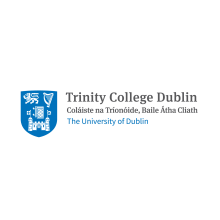Two years later than everyone else, I am watching the television adaptation of Sally Rooney’s best-selling novel Normal People.
It follows the intense on-off relationship between Connell and Marianne, first at school in Carricklea, County Sligo, then at Trinity College Dublin (that is as far as I have got, so you are safe from spoilers).
Among the themes explored is class – Connell’s background is decidedly less affluent than Marianne’s, and when they arrive at university, it is he who struggles to find his place, to fit in.
Trinity, in Normal People, is strikingly elitist – a depiction that was countered by its real-life provost Linda Doyle in an interview with Times Higher Education last year, when she acknowledged the “perception” but said it belied the reality and all the work that had gone on to address issues of access and equity.
The story is interested primarily in the emotional lives of the protagonists; it is not a dissection of higher education – but as a novel from an acclaimed millennial writer, it does offer insights about both the realities of student life and that all-important perception of universities.
For example, while the wealthier Trinity students party, Connell serves customers in a petrol station and waits at tables in a Dublin restaurant.
And although he struggles to articulate himself in class, surrounded by people from whom he feels so different, he spends the rest of his time studying intensively, scoring top marks and observing, when asked about his academic prowess, that he does not consider himself to be special, but that many of the more privileged students on his English literature course do not really “do the reading”.
When he returns to Sligo to see an old school friend who has stayed and got a job rather than go on to further study, both express doubts about whether they are doing the right thing, and what future they are signing up for, or closing off, with their respective decisions.
These scenes reflect the day-to-day realities of the student experience, and the uncertainties of early adulthood and exploring one’s identity and place in society, but Normal People also reflects on more politicised aspects of university life.
In another scene, Connell is handed a leaflet objecting to a guest speaker with right-wing, possibly fascist, views. An obnoxious classmate frames this as censorship and an abuse of free speech, but Connell reasonably observes that protecting free speech does not mean you have to invite every fascist to campus.
It rather takes the sting out of an increasingly disingenuous and toxic debate – one that we get new insights on in this week’s news pages, thanks to the annual Student Academic Experience Survey carried out by the Higher Education Policy Institute and Advance HE.
While these vignettes from Normal People hardly constitute startling insights for anyone working in a university, I found them interesting because arguments about higher education seem these days to be prosecuted almost entirely by two polarised camps: those working in universities who have one view, and an opposing external view mediated by a highly critical right-leaning media.
In recent years, the latter’s view has also been adopted and channelled by government ministers.
For much of the public, who do not spend a lot of their time thinking about universities one way or another, it is all too easy to just accept the latter framing – that higher education is a racket, and a root cause of culture war rows that, as presented, seem pretty bonkers.
So it is useful to glimpse another view: of an accomplished young author, Rooney, who has been a student relatively recently, who understands fellow millennials, and who tells stories so powerfully.
That is not to suggest that the university experience as shown in Normal People is documentary evidence. The data in this week’s Hepi survey offer a much more detailed and factual overview – albeit for the UK, rather than the Republic of Ireland.
But as Trinity provost Doyle reflected in her interview, while reality is obviously important, so too is perception. The two do not always match up, and it takes time for the latter to catch up with the former.
Good, informed, powerfully realised drama such as Normal People can shed light on the issues that students and others in higher education are working through. It offers insights into what others perceive university life to be like, and an alternative to the caricatures peddled in the press.
It is also very good TV – consider this a five-star review, two years past its deadline.
Register to continue
Why register?
- Registration is free and only takes a moment
- Once registered, you can read 3 articles a month
- Sign up for our newsletter
Subscribe
Or subscribe for unlimited access to:
- Unlimited access to news, views, insights & reviews
- Digital editions
- Digital access to THE’s university and college rankings analysis
Already registered or a current subscriber? Login






